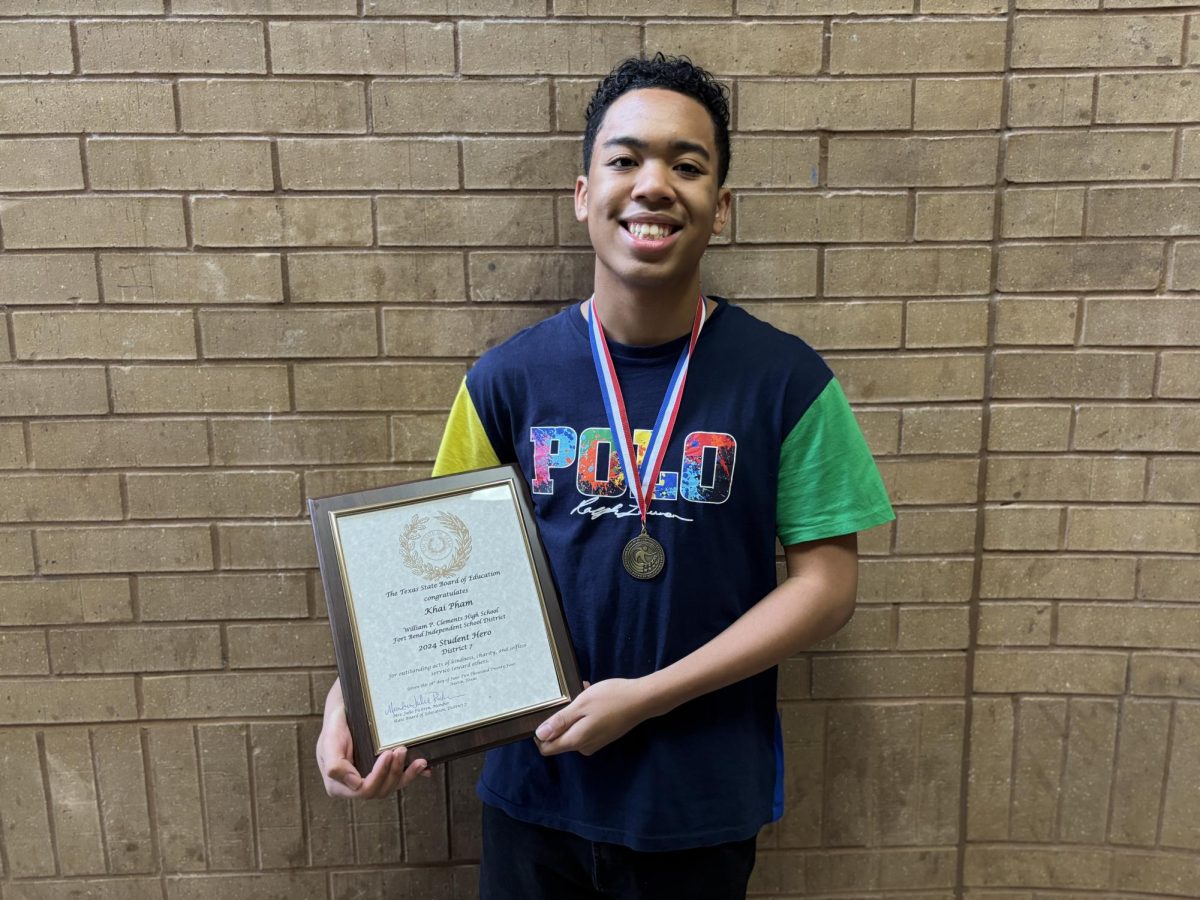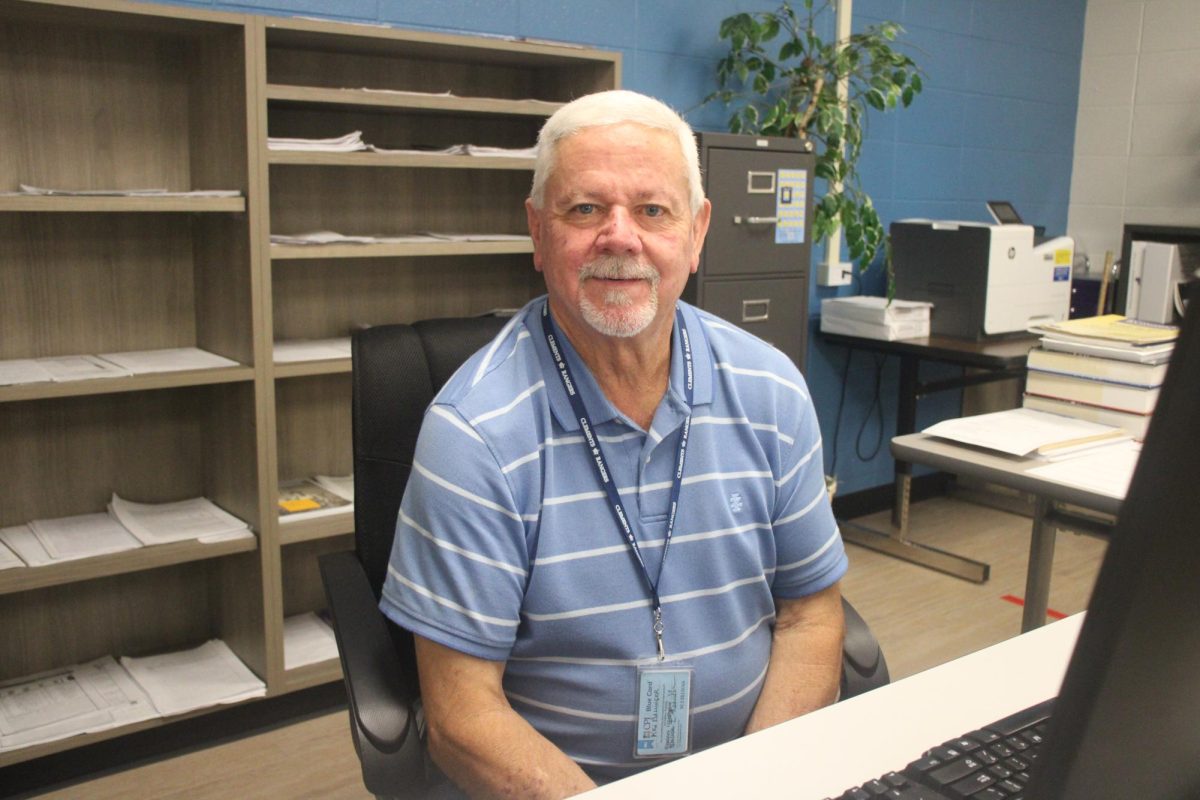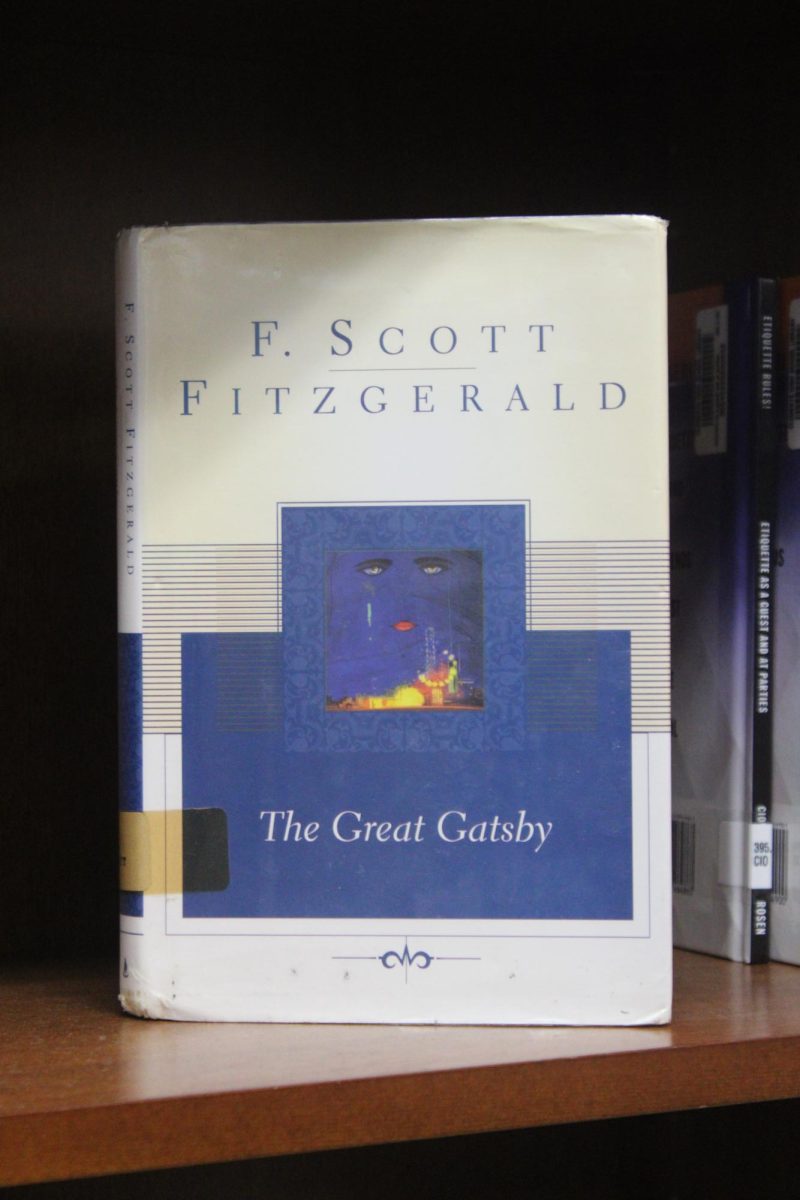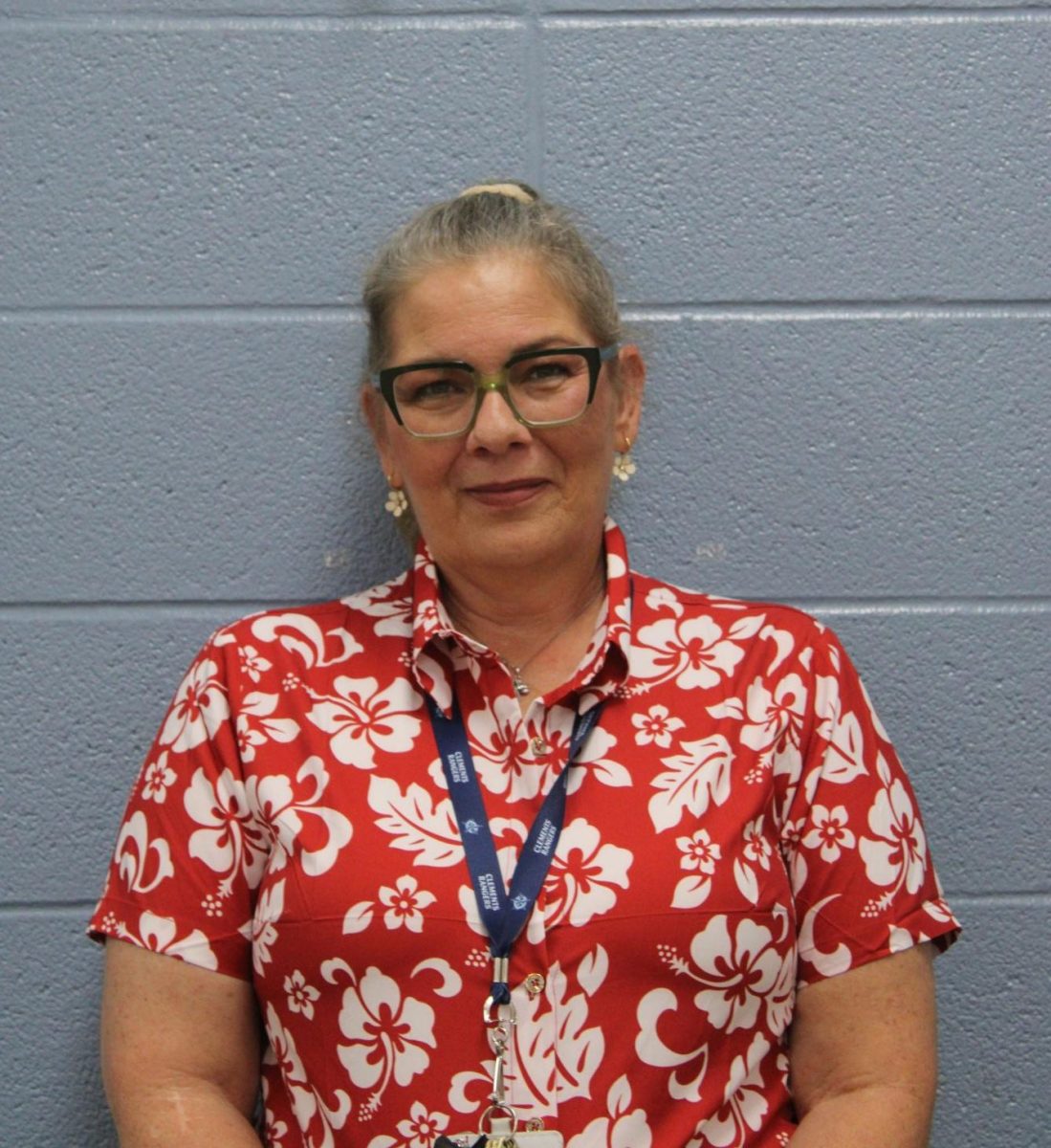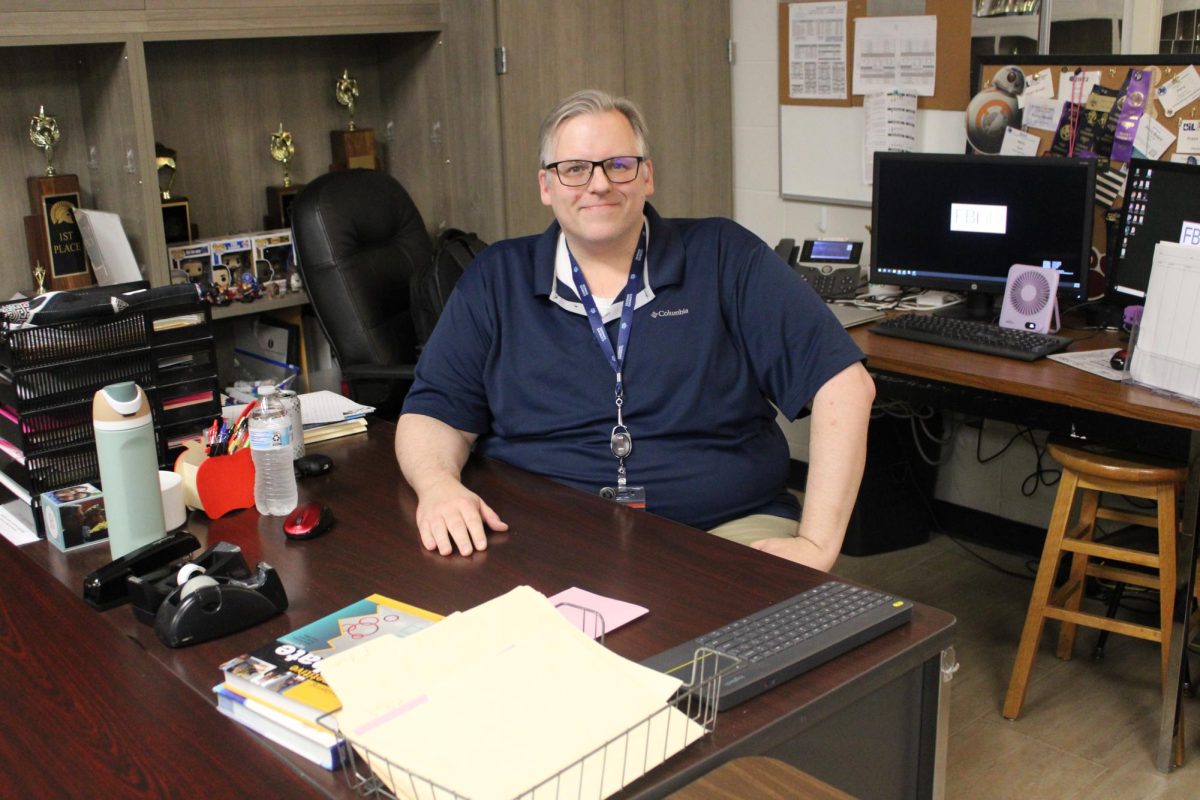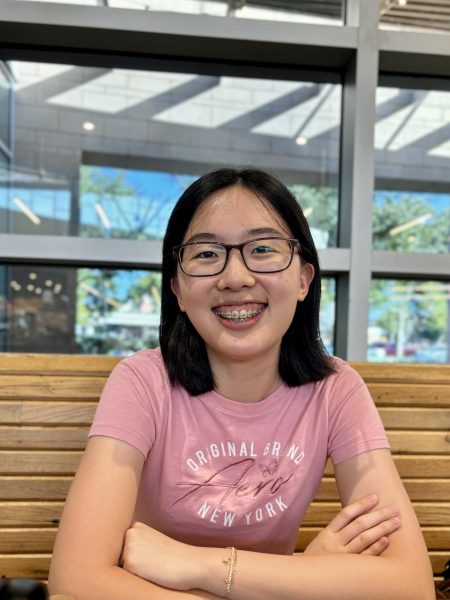Turmeric.
Charcoal.
Poppy seeds, to help with exfoliation.
Through infusions of bright spices and aromatic oils, senior Khai Dinh Wilson Pham has touched hearts and changed lives in the most quietly transformational of ways.
Pham was one of 15 students across the state of Texas recognized with the 2024 Student Heroes Award for outstanding volunteer service. His project involves converting discarded animal fat into handmade soap bars for homeless people.
“When I went volunteering, I noticed that something that most homeless people didn’t have is soap, [and] I asked myself, how could something so small be so inaccessible?” Pham said. “I wanted to address the hygiene needs and problems in my community.”
Pham started experimenting with making different soaps during his junior year, initially to address his own insecurities about having acne – he said it took months of research before he felt confident enough to give his product to others.
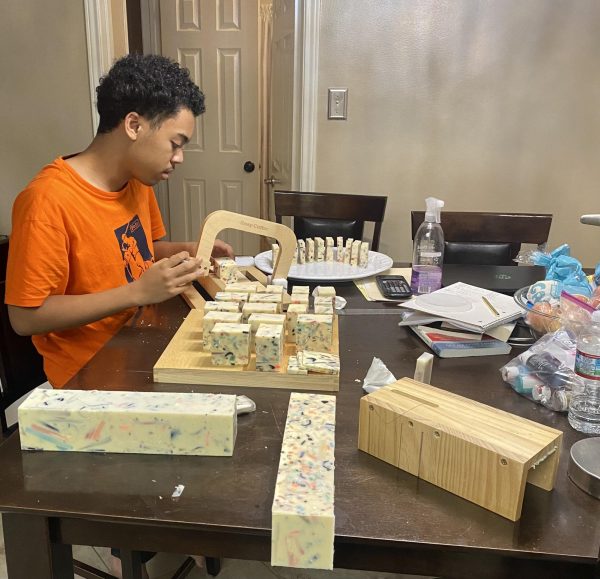
“I was scared that it wouldn’t be enough for the people,” Pham said. “When I first started out, this soap never lathered [or it] crumbled, and it was slick with lye [or] ratios were wrong.”
SoapTok, short for Soap TikTok, was a major source of inspiration for Pham. Rather than use glycerin, an ingredient commonly used to mass manufacture low-quality soap bars, Pham decided to use animal fat, which is better quality but takes months to cure.
“Whenever I try to recruit people to my cause, like teenagers, most of them are like, I don’t want to spend three hours cutting beef fat and getting the mess on my clothes or I don’t wanna spend all the time just rendering it in a slow cooker and just adding chemicals [be]cause lye is also dangerous,” Pham said.
Pham’s endeavor has so far been a solo operation, often consisting of long nights in the kitchen slow-cooking the fat – in fact, part of the criteria for the Student Heroes Award is that the project is conducted independently. Valued at around $2 each, Pham’s soap bars are delivered weekly to either The Beacon, a homeless shelter in Houston, or Fort Bend Family Promise in Missouri City.
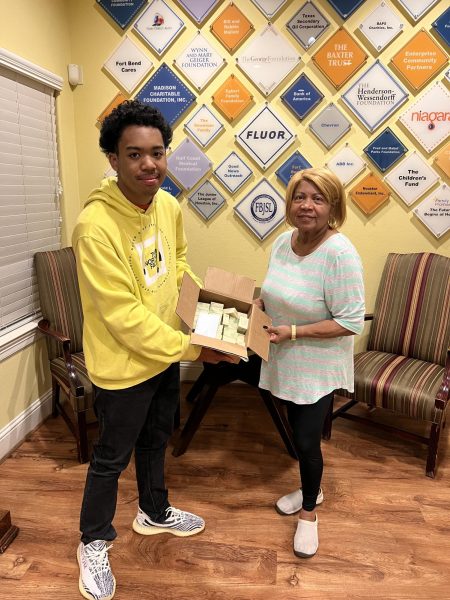
“Whenever I donate soap, I always see them coming in with smiles on their faces,” Pham said. “They [are] always sniffing the soap, man, even the coworkers, like the people that I work with at the home shelters, use it for themselves.”
While razor-thin bars of soap are the norm at homeless shelters, Pham’s product goes above and beyond the bare minimum of even commercially available soaps – he adds sugar, coconut water, and sometimes fragrance oils. Ultimately, he said he has found a true sense of community through his volunteer project.
“I never had many friends or I had never had that many connections with my family,” Pham said. “When I started giving out to the homeless people, they started connecting with me and they treated me like family, like a brother, and they love me. With them, I can find a connection that’s more deep than most friendships that I find in school. That’s enough for me.”
Speech and debate teacher Renita Johnson said Pham’s project caught her attention when she tasked her students with designing a company. Seeing Pham’s genuine desire to help, Johnson said, inspired her to contribute by purchasing ingredients.
“I just think [Pham is] probably a little bit more mature than the average student his age,” Johnson said. “I think even the project that he chose to do on his own as a way to give back to the community shows a little bit more maturity and definitely selflessness. This didn’t come about because he was doing a campus activity, but simply because he saw a need and out there in the community with a group of people and wanted to help. In general, not a lot of us do that.”
Pham said that one dispiriting trend he has seen while volunteering is how others approach community service not with passion, but rather for the numbers – to put hours on college applications.
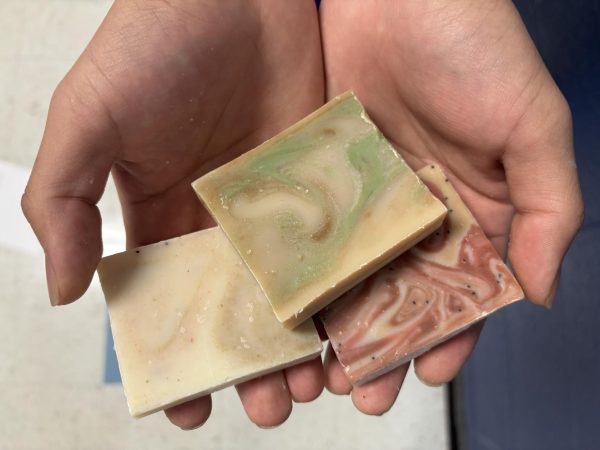
“They don’t realize when they’re volunteering the joy and fulfillment that comes from helping others, and then just seeing the genuine smiles on their faces,” Pham said. “I feel like in the context of Gen Z, our generation has incredible potential when we’re creative and outspoken. We have all this technology and sciences, but I think the key quality is just channeling all these aspects into causes that matter.”
At the start, some of Pham’s classmates even made fun of his project for being “girly” – as a Black and Asian man, Pham perhaps still doesn’t quite fit the mold of a soapmaker. But he’s grown into a leader who tries to see beyond skin deep in how he looks at others.
“[Homeless people] are people, too,” Pham said. “ It’s not their fault that they are where they are right now and, you know, any one of us could end up in that situation…I hope that [by] using soap and giving them that sense of cleanliness, they can help and support themselves and get out of that perpetual system.”
By now, Pham is a familiar face at the HEB and Kroger meat market — he has recycled over 600 pounds of discarded fat to make 7,241 soap bars, triple the amount he had when initially selected for the award in March, valued at approximately $14,482. With time, his soap has also grown more adventurous – some are marbled with streaks of fuschia, others are bright orange, and still others are various hues of pale green and pink. Although Pham will transition to college in the fall, he said he will try to find a way to keep the project going.
“I’ve been reaching out across social media, trying to inspire kids like myself, teenagers to serve as a community in their own way,” Pham said. “My ultimate goal is basically just to find something that’s sustainable and just help other people build projects [to] benefit the community…while change nowadays feels slow, it can happen if we just keep planting the seeds of empathy and action and building connections.”


